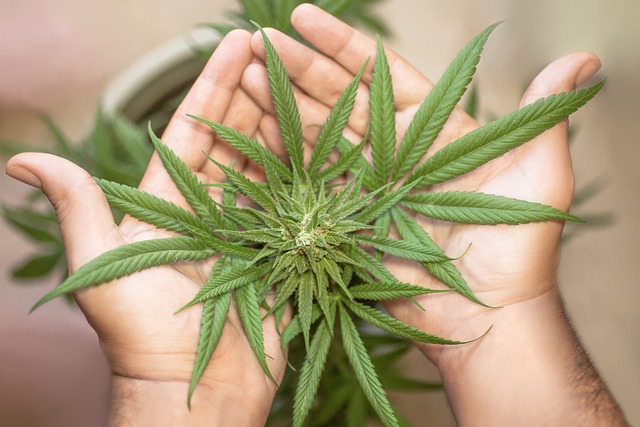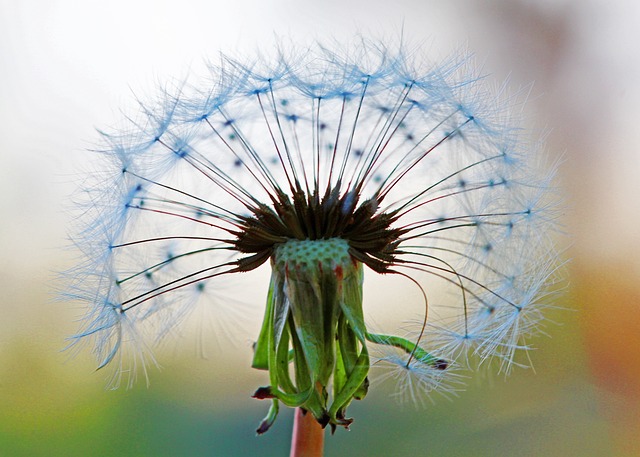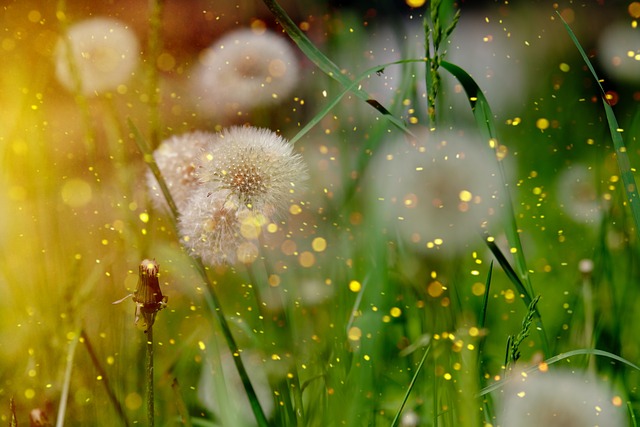As of 2023, THCA (Tetrahydrocannabinolic Acid) flowers are legal in Michigan under the state's medical and adult-use cannabis laws. Unlike its psychoactive counterpart THC, THCA does not require heating to become active and is permitted due to its status as a precursor to THC. Adults 21 years and older can possess, cultivate, and use cannabis products, including THCA flowers, adhering to state regulations. These products are available through licensed dispensaries that comply with Michigan's safety and potency standards. The state's progressive approach allows for the legal cultivation, processing, and sale of THCA flowers, which are valued for their potential therapeutic benefits without psychoactive effects. Users should handle and store these flowers properly to preserve their properties and follow dosing guidelines. It is important for residents and visitors to stay updated on Michigan's cannabis laws, as they can change over time. THCA legal status in Michigan underscores the state's commitment to providing access to a variety of cannabinoids within a regulated framework.
Exploring the nuanced landscape of cannabis legality, this article sheds light on the status and potential of THCA flowers in Michigan. We delve into the legal parameters governing their use, offer insights on harnessing their benefits within the state’s regulatory boundaries, and guide you through the intricacies of cultivating and consuming these budding wellness agents responsibly. Join us as we navigate the thca legal in Michigan scene, ensuring a clear understanding for enthusiasts and newcomers alike.
- Navigating THCA Flower Legality in Michigan: A Comprehensive Guide
- Maximizing the Benefits of THCA Flowers in Michigan's Legal Landscape
- Cultivating and Consuming THCA Flowers within Michigan's Regulatory Framework
Navigating THCA Flower Legality in Michigan: A Comprehensive Guide

In the context of cannabis regulation, THCA (Tetrahydrocannabinolic Acid) flower legality varies by state and in Michigan, it falls under a specific set of guidelines. As of my knowledge cutoff in 2023, THCA itself is not explicitly criminalized in Michigan. This is because THCA is the raw, acidic form of THC (Tetrahydrocannabinol), which is the psychoactive component of cannabis that becomes activated when heated or combusted. Under Michigan’s medical and adult-use cannabis laws, possessing, growing, and using cannabis for personal use is legal for individuals 21 years of age and older, provided it is done in compliance with state regulations. For those interested in the medicinal properties of THCA, it’s important to note that acquiring THCA flowers must be done through licensed dispensaries or cultivators who provide products that meet the state’s standards for safety and potency. Users should always verify the legal status of any cannabis-related product with local authorities or refer to the most current legislation as laws can evolve. In Michigan, it’s crucial to stay informed about the nuances of cannabis legality, including THCA flower possession and use, to ensure compliance with state laws. This guide aims to clarify these complexities for residents and visitors alike.
Maximizing the Benefits of THCA Flowers in Michigan's Legal Landscape

In Michigan, where the legal landscape has evolved to embrace cannabis products, THCA flowers have emerged as a significant focus for both medical and recreational users seeking the potential therapeutic benefits of cannabinoids. The legality of THCA (Tetrahydrocannabinolic Acid) flows from the state’s comprehensive regulatory framework that governs the cultivation, processing, and sale of cannabis products. This has paved the way for consumers to explore the unique properties of raw cannabis, which contains THCA in its natural, non-psychoactive form. Unlike its decarboxylated counterpart THC (Tetrahydrocannabinol), THCA is associated with anti-inflammatory and neuroprotective effects, making it a subject of interest for those looking to harness cannabis’s health benefits without the psychoactive high. To maximize these potential benefits, users in Michigan are encouraged to understand proper storage techniques and handling to preserve the THCA content until use. Additionally, dosing guidelines should be followed to ensure a safe and effective experience, as the effects of THCA can differ from those of THC once the compound is heated and converted during combustion or vaporization. As such, the state’s legal status of THCA flowers offers an exciting opportunity for users to engage with cannabis in a new light, with a focus on the plant’s raw form and its potential wellness applications. Users interested in exploring THCA flowers should stay informed about the evolving regulations and best practices to fully utilize these emerging options within Michigan’s legal cannabis market.
Cultivating and Consuming THCA Flowers within Michigan's Regulatory Framework

In Michigan, the cultivation and consumption of THCA flowers are regulated under the state’s medical and adult-use cannabis laws. THCA, or tetrahydrocannabinolic acid, is a non-psychoactive precursor to THC, found in raw cannabis flowers. Cultivators interested in growing THCA-rich flowers within Michigan must adhere to the stringent regulations set forth by the Michigan Department of Licensing and Regulatory Affairs (LARA). These regulations include obtaining the necessary licenses, following state-mandated cultivation practices, and ensuring compliance with all local ordinances. The Michigan Medical Marihuana Act (MMMA) and the Michigan Regulation and Taxation of Marihuana Act (MRTMA) provide a framework for both commercial and homegrown cannabis, with specific guidelines for the cultivation of THCA flowers. Homegrowers must meet certain criteria, including age restrictions and plant count limitations, to legally cultivate THCA flowers at home.
For those consuming THCA flowers in Michigan, it’s crucial to understand that while raw cannabis flowers containing THCA are legal under both the MMMA and MRTMA, their consumption must align with these laws. Consumers should be aware of the differences between consumable and non-consumable parts of the cannabis plant, as only certain parts are permissible for consumption in edibles or other ingestion methods. Additionally, any processed products made from THCA flowers must undergo proper testing to ensure they meet state purity and potency standards before being sold in licensed dispensaries. Understanding Michigan’s regulatory framework is essential for both cultivators and consumers to legally and responsibly engage with THCA flowers within the state.
In conclusion, the emergence of THCA flower as a prominent figure in Michigan’s evolving cannabis market offers a promising outlook for consumers and growers alike. With clear guidelines on legality, optimal cultivation practices, and informed consumption habits, enthusiasts can now fully appreciate the potential of THCA flowers within the state’s regulatory framework. As this article has outlined, understanding the intricacies of THCA flower legality in Michigan is paramount for a compliant and rewarding experience. Whether one chooses to cultivate or consume these budding assets, doing so responsibly underscores the responsible evolution of cannabis culture in the state.
